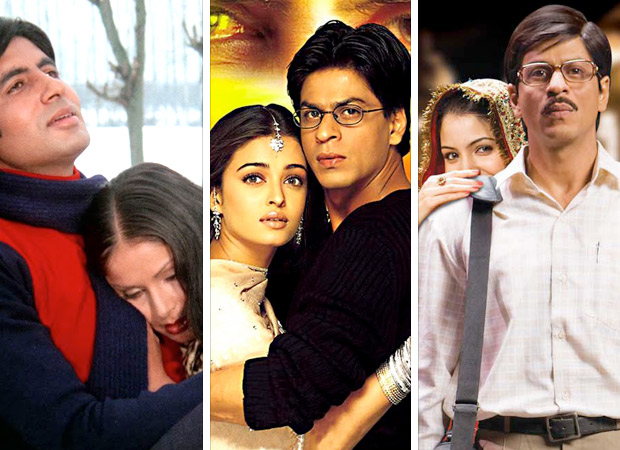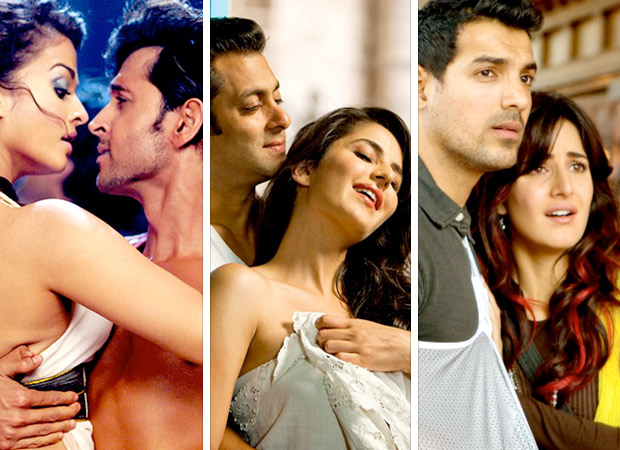The prime banner of Hindi cinema, Yash Raj Films, which has grown from strength to strength over the decades, had one more virtue: it was the citadel of romance. Was, we say, because time has brought in dynamic changes.
Its founder, veteran Yash Chopra, may not have started out with love stories when he began his directorial career in 1959 with his brother B.R. Chopra’s production Dhool Ka Phool. When he branched out with Yash Raj Films, it was with the classic romance Daag in 1973.
And over time, Yash Chopra began an affair with love stories as varied and classic as Kabhi Kabhie, Doosara Aadmi and even in a way Noorie (both of which he only produced), Silsila (despite its failure to get back its investment), Chandni (the film he decided to make after a flop run by following his heart instead of prevalent market trends), Lamhe—his career-boldest film as director, Darr (despite the angle of the obsessed lover), Dil To Pagal Hai and the cross-border romance Veer-Zaara. He also presented Aaina and Yeh Dillagi, which were modest romances.
Above all, Yash Chopra produced Dilwale Dulhania Le Jayenge, one of the ultimate classics of the 1990s, which has a relatable quotient even today. Like this film, Mohabbatein and Rab Ne Bana Di Jodi, which followed, were all written and directed by his son Aditya Chopra. Yash Chopra stuck to his romantic formula till the end, when he made his swan song Jab Tak Hai Jaan, though his trademark magical love seemed missing in this 2012 film. His love stories, complete with heroines draped in sarees singing in exotic Swiss locations, were usually anointed with at least good music, and Jab Tak Hai Jaan, also missed the boat there.
Early experiments with crime
Yash Chopra always directed varied films. When his social Aadmi Aur Insaan was delayed, he adopted a foreign play into the gritty suspense drama Ittefaq, shot it within a month, without songs, and scored a big hit in 1969. In 1973, he adapted and Indianized a James Hadley Chase novel into Joshila. Though the film bombed, it forged a lasting alliance with producer-distributor Gulshan Rai, and their next was the blockbuster crime drama, Deewaar, a premium Salim-Javed script.
In the 1980s, when the director went through his only but long low phase, his misadventures included Mashaal and Vijay, family socials spiked with crime, a formula also employed in his production, Sawaal. These films religiously followed the ethos of that era—big stars with scripts catering to their egos, mediocre music and political and crime angles. None did well, causing Chopra to finally introspect, cock a snook at trends and go in for romance with Chandni, reinstating his prestige and that of his banner, and replenishing his soul.
In sync with trends
When Aditya Chopra took over the reins, he personally preferred to follow his father’s romantic footsteps as a director, but the shrewd filmmaker knew that times (as in audience) had changed. Viewers wanted variety, and crime was always a viable alternative. Yash Raj Films was bankrolling three or more films every year. So while the Hum Tum-Salaam Namaste-Mere Brother Ki Dulhan kind of cinema also came in, Aditya experimented with crime as well.
His first and standout experiment was the 2004 Dhoom, a caper film about a lovable baddie and two different-as-salt-and-pepper cops. Wanting in his heart to make a series, but unwilling to put in a big investment, Aditya cast Abhishek Bachchan (who had never had a hit), John Abraham (who had only Jism, whose success was attributed more to Bipasha Basu) and his own brother Uday Chopra, with Esha Deol (who had had no hit) and Rimi Sen. A new music director (Pritam) was assigned, along with a zero-hit track-record director, Sanjay Gadhvi.
That Dhoom literally created a dhoom (sensation) was an understatement. Everything about it became cult—the songs, the bikes, the stylized action, the pair of cops and the cast. Happy that his conviction paid off, Aditya made the successively bigger and more successful Dhoom 2 and Dhoom 3 with bigger villains (Hrithik Roshan and ‘two’ Aamir Khans respectively).
Encouraged by the first Dhoom, Aditya launched the heist drama Bunty Aur Babli, another winner, and four more diverse action movies besides Dhoom 2. Fanaa was the love story of a terrorist, Kabul Express addressed terrorism in a docu-drama style, New York built in a love triangle plus terrorism in America and Tashan was dark and desi. The first three were winners, though Kabul Express had to be content with winning just critical acclaim.
But the film that really changed the script for the future, providing YRF a new and trendy roadmap was Ek Tha Tiger (2012). YRF’s first association with the new box office favourite, Salman Khan. This was an espionage drama where a Veer-Zaara-like cross-border romance (this time between an Indian agent and a Pakistani spy) was the icing on the action-studded cake.
The kind of mega-bucks …Tiger made was historic—it was their first film ever to cross Rs 100 crore, and, officially, stood a teeny-weeny bit short of Rs. 200 cr. YRF’s period crime drama Gunday did well by its own scale. But Aurangzeb (on crime within a family, largely) and Kill/Dil (a cocktail of friendship, love and crime) again showed that dated ‘80s-ish concepts would not work now.
YRF had begun to flirt continuously with crime now. Detective Byomkesh Bakshy!, cashing in the classic and iconic-in-Bengal detective of a bygone era, was a disaster, Mardaani on a female cop with social overtones did tepid business; Fan, a loopy story of a lookalike (!!) fan of a star who wants to punish his idol was a calamity despite Shah Rukh Khan, and Bank Chor and Qaidi Band, with humble approaches to crime, barely registered.
The road ahead was confirmed, on the contrary, by Dhoom 3 and Tiger Zinda Hai, YRF’s first Rs. 250-plus and Rs. 300-plus crore grossing films. Aditya had made his choice now: small films for the bread-and-butter, but big actioners for the banquet!
And so now, the small confections to come from YRF, like Sui Dhaaga (despite Varun Dhawan) and Sandeep Aur Pinky Faraar will be the side portions: for YRF is cooking up mega-feasts that will dominate their repertoire and have them assimilating nutritious money all the way to the bank: Thugs Of Hindostan (with the never-before excitement-generating combo of Amitabh Bachchan and Aamir Khan, with Katrina Kaif as bonus), Shamshera (with Ranbir Kapoor and Sanjay Dutt at daggers drawn with each other) and the untitled Hrithik Roshan-Tiger Shroff actioner whose USP will be a fight sequence between them.
And it is only a matter of time (and script), we guess, before the next Salman Khan biggie is worked out and announced. Yes, YRF, now, is where the love for big-time action is!
Also Read: FIRST LOOK: Ranbir Kapoor in Yash Raj Films Shamshera directed by Karan Malhotra
[ad_2]
Source link






0 coment�rios: